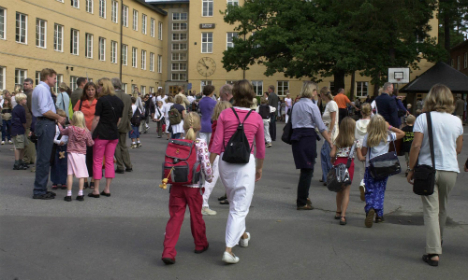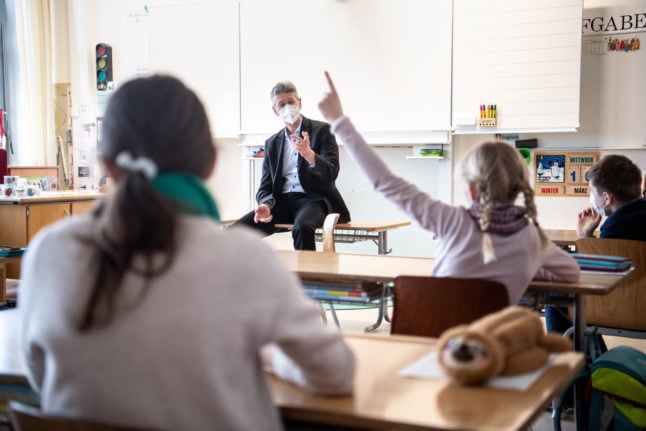Swedish daily Svenska Dagbladet first reported on 46-year-old Mufić’s Facebook post published on August 11th this year in which he recounted how the enrolment of his young daughter went down a year ago.
The post has since garnered more than 11,000 likes and been shared over 2,000 times.
“Ninety percent of the people can’t believe it’s true and ten percent think that I’m lying,” he told the newspaper.
Mufić said they were happily surprised by the enrolment procecure alone.
“We'd brought with us all her grades from our country, as well as other documents. It turned out that all that was needed was her personal number (Swedish social security number). We were surprised already by that.”
Although Mufić said he is aware that the Swedish school is hardly problem-free, he says the warm welcome his daughter got counts for a lot.
“I know that the Swedish school is not the best in the world, but compared with the Croatian school I can't say it's bad. We are more than happy about how our daughter Leona has been welcomed.”
READ MORE: What the Pisa rankings actually tell us about Swedish schools
This is Mufić's recounted conversation with the school principal:
Us: We’ve just moved to Sweden and have an 11-year-daughter we want to enrol.
Him: OK, fill these forms in, we need some information about your daughter.
Us: You see, she doesn’t speak Swedish.
Him: OK, she’ll learn.
Us: Perhaps, in the beginning, she’ll need to take other types of classes.
Him: That possibility exists, but we think she’ll learn Swedish the best and fastest way possible by being in a class with other children. Also, a Swedish teacher will work with her individually two hours a day.
Us: What does Leona need to bring with her to school?
Him: Nothing. She’ll get everything here: Books, notebooks, pens, erasers, pencil sharpeners, rulers, crayons. She just needs to make sure that the battery in her iPad doesn’t run dry.
Us: Does that mean we have to buy her an iPad?
Him: No, she’ll get an iPad at school to make it easier for her with translation and the classes, but she needs to keep an eye on the battery herself.
Us: Do we need to organize food for our child?
Him: That’s not necessary. Breakfast is served from 7.30am, lunch from noon. We have two different menues each day, one with a meat option and one with a vegetarian.
Us: Shall we speak Swedish with Leona at home sometimes?
Him: Not at all. You should speak Croatian at home. And on top of that it would be good if she studies Croatian once a week as part of her native language classes.
Us: Do you have anyone teaching in Croatian?
Him: Not at our school, but native language classes in Croatian are held on Thursdays from 4pm at the Eriksdal school.
Us: That’s on the other side of town…
Him: That’s no problem, we’ll order her a taxi.
Us: Taxi?
Him: Yes, it will come and pick her up in the parking lot every Thursday at 3.45pm and bring her home after her classes.



 Please whitelist us to continue reading.
Please whitelist us to continue reading.